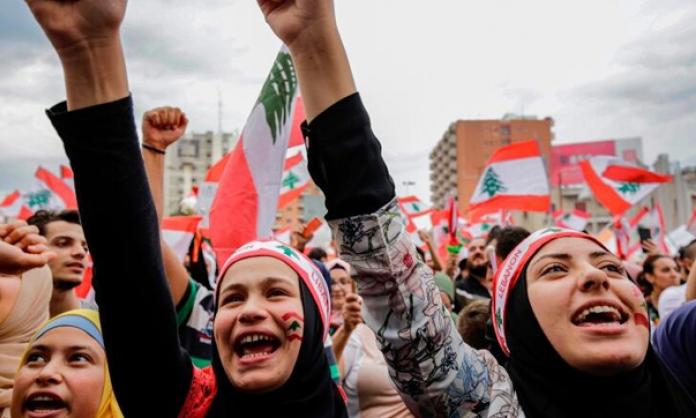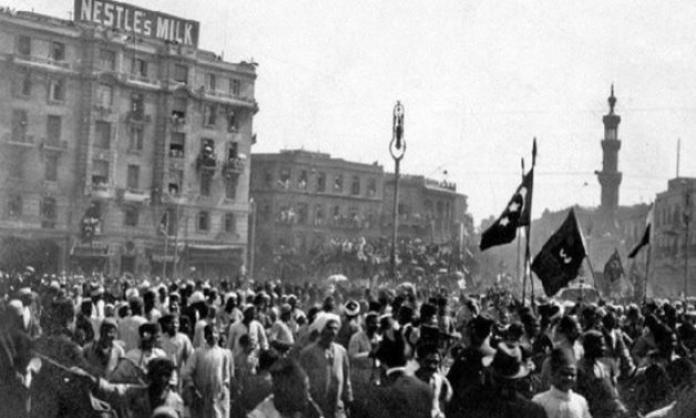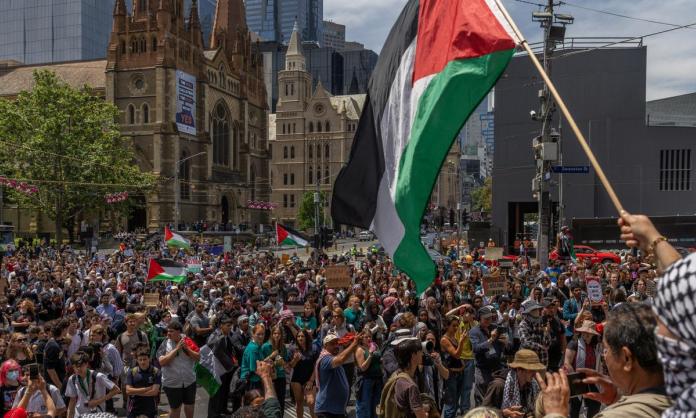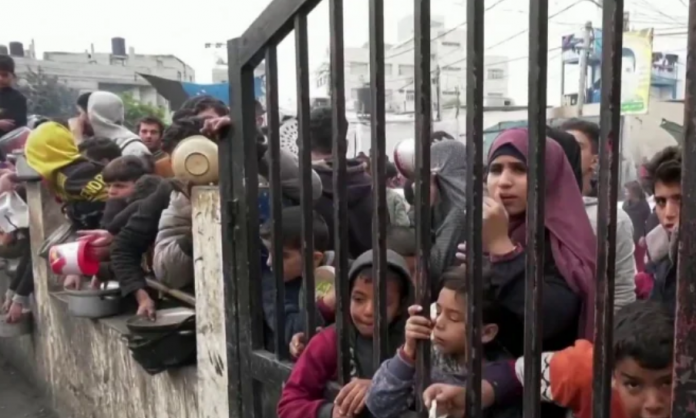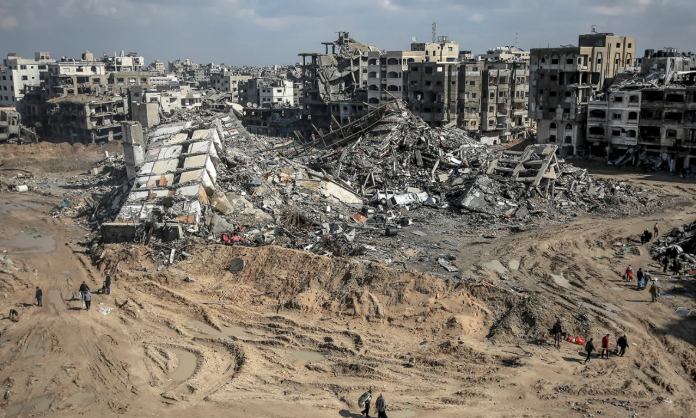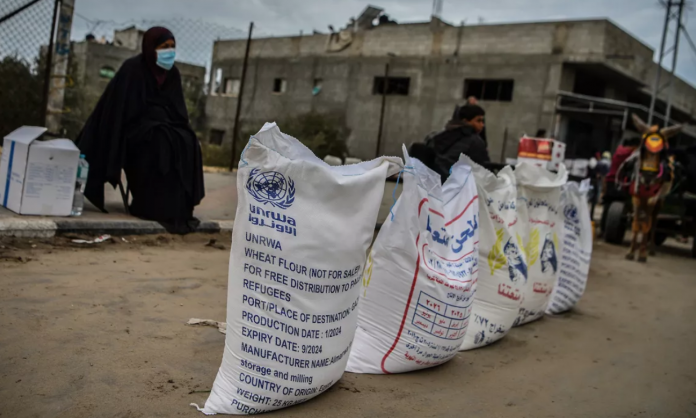The people of Lebanon have joined the heroes of Hong Kong, Chile and a host of other nations in the vanguard of the global movement for a world based on genuine democracy. Protesters have unified the small and often divided nation, and inspired solidarity from the enormous diaspora across the world. Almost two weeks after they began, protests in the country show no sign of abating. Up to 2 million mobilised on 24 October, in a dramatic show of strength against a despised government that has so far refused to offer meaningful concessions.
A new tax on WhatsApp calls has been widely referenced as a trigger for the uprising. The Lebanese telecommunications network charges exorbitant monthly rates – so cheap, data-only SIM cards that allow access to free messaging applications are the main way that poor and working class people communicate with each other. This minor tax would not have sparked a revolution in normal circumstances or in a wealthier nation. But the Lebanese economy is under strain.
The country has long been disproportionately reliant on the finance and tourism industries, while agriculture and manufacturing remain underdeveloped. The economic structure is not suited to well-rounded development at the best of times – and these are not the best of times. Lebanese society is unequal. Just 0.1 percent of bank accounts contain 20 percent of the country’s deposits, and the gap between rich and poor has been widening. The cost of food and groceries is comparable with Australia, but the minimum wage is equivalent to an abysmal $160 a week. In the unregulated private sector, many workers earn far less. Officially, the unemployment rate is below 10 percent. But a 2017 Lebanese Broadcasting Corporation report estimated that it was 25 percent, with more than one-third of youths out of work.
This domestic crisis has been exacerbated by regional developments. The Gulf states traditionally played an important role in Lebanon, both as investors and as a source of employment for the skilled Lebanese working class. But over the last decade, they have limited their intake of workers because of their own economic and political difficulties, cutting the remittances flowing back to Lebanon.
About 2 million Syrian refugees remain trapped in refugee camps, pushing Lebanon’s woeful social and economic infrastructure to breaking point. In a familiar trick, the ruling class has simultaneously exploited and vilified these highly vulnerable people, blaming them for “stealing” low-paid jobs.
The tax system is notoriously regressive, with government funded largely by a value added tax of 11 percent. Personal income tax rates range from 2 percent to 25 percent, but banks and financial institutions pay just 17 percent. The result is a government with enormous debts and no revenues to pay for much needed infrastructure and services.
This situation has then been used to justify debilitating privatisations that have resulted in basic social services that are both more expensive and less reliable. Many parts of the country have access to electricity for only 12 hours a day, while access to clean drinking water is by no means guaranteed. Even the few decent beaches and parks around Beirut, the capital, are generally privately owned and managed, leaving few public spaces accessible to the poor.
One protester articulated the bitterness driving the protests while speaking to the New York Times: “For 30 years, we’ve been living in this same corrupt system, and now there’s not even money left for them to steal any more. So now they’re coming up with new ways to steal from us”. The sentiment is indicative of widespread contempt for the government. Many instinctively understand that the Lebanese state is a machine for the enrichment of an elite whose family names have barely changed in more than a century. The incompetence of the political class is upheld sardonically as point of national pride.
Yet this profound cynicism has often resulted in widespread disengagement with politics, which has allowed elites to govern unchallenged. It often takes years for cabinets to be formed via multi-party negotiations simultaneously labyrinthine and devoid of political substance. Almost every party ends up with a piece of the pie, but they battle furiously over every crumb.
Only in the past decade have growing sections of the population challenged this miserable state of affairs. The Arab revolutions of 2011 had a faint but significant echo in Lebanon and were followed by demonstrations demanding the secularisation of state institutions. In 2015, another round of spectacular demonstrations erupted against the failure of a corrupt public-private partnership to deal with the country’s waste problem. There has also been substantial and persistent organising around women’s rights, International Women’s Day marches growing year on year. Each campaign has left a residue in the form of a growing hostility to the ruling elite and a growing confidence among a layer of activists.
It seems likely that one trigger for this latest round of protests, besides the WhatsApp tax, was the government’s catastrophic mishandling of the wildfires that swept the country two weeks ago. The state was slow to act, with much of the aid and firefighting being organised by volunteers and activists. Worse, the government had been given three powerful firefighting helicopters after similar fires in 2009, but had been too stingy to maintain them, leaving them reliant on international assistance.
**********
The Lebanese political system has been structured on religious lines since the Ottoman Empire. French colonialists institutionalised the current, uniquely divisive, form in the National Pact of 1943, creating set roles for each religious group, with disproportionate privileges given to the Christian population.
In any capitalist country, who you know is often far more important than what you know, but Lebanon takes this principle to a new level. Strategic personal connections, known as wasta, allow you to skip through customs queues, gain faster access to medical treatment, fast-track loan applications or bypass environmental regulations. The system results in highly inefficient bureaucracies that cluster around particular parties and communal networks. These chains of nepotism and patronage have helped to ensure that each ruling faction of each religious community retains a base of support within broader society.
The situation is exacerbated by an archaic voting registration system that forces citizens to vote in the electorates of their father’s birthplace, which tend to be far more segregated than the urban spaces where most young people live. This setup makes it harder for younger voters to break out of local loyalties and power structures and hinders the creation of new multi-sect parties.
One of the most exciting components of the current round of protests is that it has overcome these traditional divides. “[Down with] Everyone means everyone!”, is the most popular chant of the movement. In this elegant way, the street has rejected not just one leader or party, but the entire political class that has run the country into the ground. Protesters in the overwhelmingly Sunni city of Tripoli chanted in solidarity with activists in the southern city of Tyre after hearing reports that armed thugs had attacked their demonstrations. Multiple news agencies have reported demonstrators refusing to specify their religious affiliation when asked.
The transformative power of revolutionary struggle goes deeper still. Even from a distance, it is hard to miss how the rebellion has helped to renew Lebanese society, allowing people to break out of socially imposed constraints and act in previously unthinkable ways. Women have led the struggle, as immortalised by the anonymous hero who kicked a member of the hated security forces in the balls as he threatened to open fire on an unarmed demonstration. Footage of the subsequent sit-ins and roadblocks show that such leadership is the rule, not an exception. Women workers at the American University of Beirut have led their colleagues out on strike, eventually forcing management to put out a statement of support for the protest movement.
Also inspiring is that Syrian and Palestinian refugees have joined the protests, hopeful that a more democratic and just Lebanese society would be more sympathetic to their plight. As majority Muslim populations, both communities have no prospect of being granted citizenship if the sectarian political system remains intact. Despite paying taxes to the government, they have no access to government services and are often hyper-exploited by opportunistic employers.
The main difficulty the movement faces is one common to many uprisings in recent times. The protests lack serious organisational infrastructure, which hinders their ability to engage in serious democratic deliberation and decision making. This makes it difficult to formulate demands that can then become a focal point for ongoing mobilisations. It also leaves the most revolutionary elements of the movement sidelined by established political forces, as happened most dramatically in Egypt.
One example of this is the widely reported demand for fresh elections. In a political system so rigged in favour of the existing elites, it is hard to see anything positive emerging from a ballot. Such a process could dissipate popular energy and allow a section of the ruling class to consolidate its position. More problematic is the widespread call for a technocratic government drawn from outside the existing political parties. This demand reflects a widespread misapprehension that the causes of Lebanon’s woes are technical, rather than the product of parasitical profiteering by a short-sighted and complacent capitalist class that uses the state as an ATM machine.
The tendency towards technocratic solutions is made worse by the sclerotic state of the union movement, which has been systematically and consciously undermined by sectarian leaders for more than a decade. Without clear and mobilised working class institutions, it is easier for sections of the middle class to offer neoliberal policies as a “modernising solution” to economic mismanagement.
Finally, looming over the entire process is the repressive power of the Lebanese army and well-armed militias run by Hezbollah. The latter are battle hardened by their experience in crushing the democratic aspirations of the Syrian revolution and have been somewhat unleashed after an aggressive speech by their leader, Hassan Nasrallah.
Ensuring that the movement continues to mobilise in enormous numbers, while building an anti-capitalist force that can make the arguments needed at key moments of the struggle, will be crucial. Notwithstanding these issues, there are many reasons to be hopeful. After decades of being mere playthings in the hands of a corrupt establishment, the people of Lebanon have risen. They deserve our attention and solidarity. We have much to learn from their courage.




